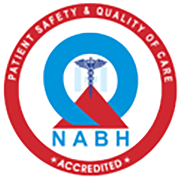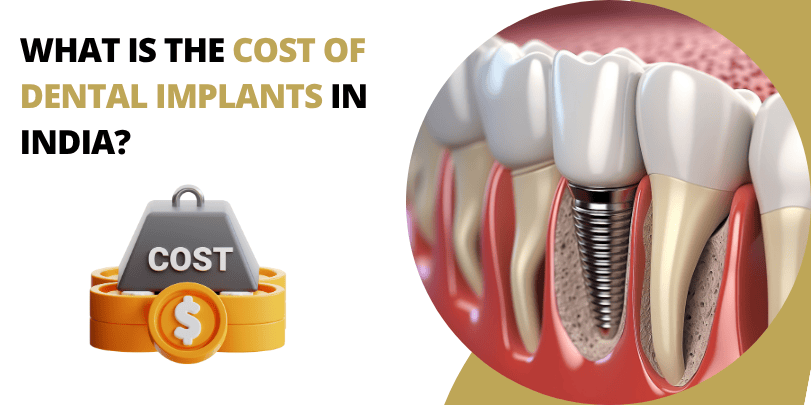How To Brush Your Teeth?
Always use a soft toothbrush for thorough but gentle cleaning. After each meal, or at least twice a day.
Hold your brush at a 45-degree angle. Begin by brushing the outside of the front teeth. Use a gentle back-and-forth motion.
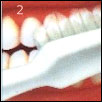
Next, brush the outside back teeth, steering along the gum line.
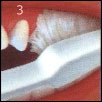
Inside back teeth: Use short angled brush strokes.
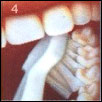
Inside front teeth: title the brush vertically; use an up-and-down motion.
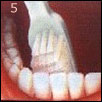
Chewing surfaces: hold the brush flat. Use a gentle scrubbing motion.
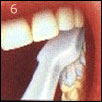
Important: always replace your old toothbrush at least every 3-4 months.
Alternative brushing: Please check out the electronic toothbrushes. They can achieve the unmatched cleanness.
How to Floss?
Wind 18″ of floss around your two middle fingers.
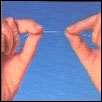
Gently guide the floss between teeth.
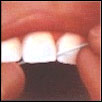
-
- To remove plaque and debris, gently move the floss up and down against the tooth.
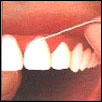
-
- As you move from tooth to tooth, use a fresh section of floss each time.
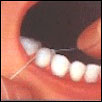
Bad Breath
Bad breath, or halitosis, can be caused by many things. It may be the result of odor-causing foods, tooth decay, periodontal (gum) disease, continued mouth dryness, use of tobacco products, sinus or respiratory infections, some medical disorders, inadequate oral hygiene or some medications. Your dentist can help identify the cause and, if it’s due to an oral condition, can develop a treatment plan to eliminate this common source of embarrassment.
Hygiene-related causes for bad breath: What you eat affects the air you exhale. Certain foods, such as garlic and onions, contribute to objectionable breath odor. Once the food is absorbed into the bloodstream, it is transferred to the lungs, where it is expelled. Brushing, flossing and mouthwash will only mask the odor temporarily. Odors continue until the body eliminates the food. Dieters may develop unpleasant breath from infrequent eating.
If you do not brush and floss daily, particles of food remain in the mouth, collecting bacteria, which can cause bad breath. Food that collects between the teeth, on the tongue and around the gums can rot, leaving an unpleasant odor. Dentures that are not cleaned properly can also harbor odor-causing bacteria and food particles.
Diseases-related causes for bad breath: One of the warning signs of periodontal (gum) disease is persistent bad breath or a bad taste in the mouth. Periodontal disease is caused by plaque, the sticky, colorless film of bacteria that constantly forms on teeth. The bacteria create toxins that irritate the gums. In the advanced stage of the disease, that gums, bone and other structures that support the teeth become damaged. With regular dental checkups, your dentist can detect and treat periodontal disease early.
Bad breath is also caused by dry mouth (xerostomia), which occurs when the flow of saliva decreases. Saliva is necessary to cleanse the mouth and remove particles that may cause odor. Dry mouth may be caused by various medications, salivary gland problems or continuously breathing through the mouth. If you suffer from dry mouth, your dentist may prescribe an artificial saliva, or suggest using sugarless candy and increasing your fluid intake.
Tobacco products cause bad breath, stain teeth, reduce one’s ability to taste foods and irritate gum tissues. Tobacco users are more likely to suffer from periodontal disease and are at greater risk for developing oral cancer. If you use tobacco, ask your dentist for tips on kicking the habit.
Bad breath may be the sign of a medical disorder, such as a local infection in the respiratory tract (nose, throat windpipe, lungs), chronic sinusitis, postnasal drip, chronic bronchitis, diabetes, gastrointestinal disturbance, liver or kidney ailment. If your dentist determines that your mouth is healthy, you may be referred to your family doctor or a specialist to determine the cause of bad breath.
Caring for your smile: Eliminating periodontal disease and maintaining good oral health is essential to reducing bad breath. Schedule regular dental visits for a professional cleaning and checkup. If you think you have constant bad breath, keep a log of the foods you eat and make a list of medications you take. Some medications may play a role in creating mouth odors. Let your dentist know if you’ve had any surgery or illness since your last appointment.
Brush twice a day with a fluoride toothpaste to remove food debris and plaque. Brush your tongue, too. Once a day, use floss or an interdental cleaner to clean between teeth. If you wear removable dentures, take them out at night. Clean them thoroughly before replacing them the next morning.
Mouthwashes are generally cosmetic and do not have a long lasting effect on bad breath. If you must constantly use a breath freshener to hide unpleasant mouth odor, see your dentist. If you need extra help in controlling plaque, your dentist may recommend using a special antimicrobial mouth rinse. A fluoride mouth rinse, used along with brushing and flossing, can help prevent tooth decay. Look for products that carry the American Dental Association Seal of Acceptance. Products that display the seal have undergone strict testing for safety and effectiveness.
Tooth Sensitivity
Tooth sensitivity is a common problem for most people. Our teeth can be greatly affected by hot, cold, sweet, and sour food or drink. Over-enthusiastic brushing, recession of gums, gum disease (periodontitis) all can expose the soft, porous structure of the tooth (dentin), making it susceptible to external stimuli.
Pain can be mild and tingly or sharp and intense. This symptom sometimes is a sign for more serious diseases. Whenever you are suffering from pain of sensitivity, you should go see your dentist before it persists or worsens.
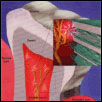
Pain signal enters tubule through exposed dentin and excites the nerve.
Helpful Hints
A review of brushing techniques and diet can help reveal causes of sensitivity. Avoid over-brushing because it can cause damage to your teeth and/or gums. Sensitivity protection toothpaste works by blocking the opening of the exposed dentin or by preventing the transfer of the pain signal from the nerve to the brain.
You should feel relief by using sensitivity protection toothpaste for two weeks. If you stop brushing with this kind of toothpaste, the sensitivity pain may return.
Also, some prescribed desensitizing agents may help you. Consult your dentist about it.
Teeth Clenching (Bruxism)
What is bruxism?
Bruxism is the technical term for forcible grinding and clenching of the teeth. It usually happens at night, during sleep, although some people grind their teeth during the day as well.
How common is bruxism?
Most people who grind their teeth are over 25 years old, and the disorder affects women and men about equally. Children also grind their teeth, but usually in response to discomfort caused by colds, ear infections or allergies. Most cases of bruxism in children resolve on their own without causing tooth damage or other problems.
What causes bruxism?
Bruxism can have a variety of causes, but the most common are probably emotional factors such as daytime stress, anxiety, anger, pain and frustration. Certain sleep disorders can trigger grinding of the teeth as well. People who are competitive, aggressive, and rushed may also be at greater risk for bruxism. Lastly, alcohol and some types of medications may worsen tooth grinding.
Why bruxism can be a serious problem?
When you chew your food, your deliver a force of about 175 pounds per square inch (psi) to your teeth. But when you grind your teeth at night, there’s no food to absorb the impact, so the force on your teeth can be 300 psi or more. That’s enough to cause permanent damage to your teeth, including cracked and chipped enamel, hairline fractures, and even wearing down of the teeth to the gumline & loosning of the dental implant screws The enamel may become so worn that the inside of the tooth (called the dentin) is exposed. If bruxism isn’t treated, it can lead to gum damage, loss of both natural teeth and restorations, and other more complicated jaw-related disorders (such as TMJ known disorders). Over time, your teeth may become sensitive due to exposed dentin, and your jaws may even move out of proper balance. Grinding your teeth can also cause a wide variety of other symptoms including soreness and fatigue in your jaw and facial muscles, and earaches or headaches-especially when you wake up in the morning. There is no known cure for bruxism. Fortunately, with night-guard trays there are ways to reduce or stop your grinding and even ways to limit further damage and pain due to grinding.
Do You Grind Your Teeth?
How to find out if you’re grinding your teeth?
Because most bruxism happens at night, most sufferers aren’t even aware of it until a sleep partner mentions the noise or until a dentist notices that their teeth are damaged.
Here are some typical symptoms that may indicate nighttime teeth grinding:
Symptom checklist:
- Jaw or facial pain and tenderness on awakening that lessens throughout the day
- Headaches or earaches in the morning that go away as the day wears on
- Spouse or sleep partner complains that the noise is keeping them awake at night
- Teeth have become sensitive to cold, pressure, or other stimuli
- Tips of teeth appear flattened
What to do if you think you may be grinding your teeth?
If you think you might be grinding your teeth at night, the first thing to do is visit your dentist to assess any possible damage. It’s essential to halt the course of the disease to prevent or arrest damage to your teeth, gums, and jaws.
Dental Diet
Proteins: Since most oral fluid is composed of proteins it is ideal to include proteins in your diet. These oral fluids act as cleansing agents for your teeth. Foods like a piece of cheese glass of milk, curds, paneer are advised especially after meals. They are good building blocks for muscles.
Fats: Limit fatty foods as it coats your tongue producing unpleasant odor or bad breadth.
Carbohydrates: Limit the intake of carbohydrates especially starchy foods like pastas, maida & biscuits since they stick between the teeth and are bacteria’s favorite. Bacteria’s feed on these sugars and produce acids which ultimately decay your teeth. So avoid sticky food & brush/rinse immediately after its consumption.
Fibers: A fiber rich diet is good for dental health. Biting and chewing on fibers cleanses your teeth and makes your mouth secrete more fluids. Biting on fruits like apples, pears and strawberries makes your teeth and gums strong. It makes the area ‘Self Cleansing”.
Water: Water neutralizes the mouth and prevents bad breadth by keeping it moist. Drink plenty of water to counter bad breath.
Tips:
1. Avoid snacking at regular intervals. Instead munch on fruits in between meals.
2. Avoid fruit juices or soft drinks like colas since they have high sugar content and are acidic
3. Avoid highly artificial colored foods to prevent discoloration of teeth, especially after whitening.
4. Avoid black Tea/Coffee as its a potential discoloration agent.
Green Dentistry
Proteins: Since most oral fluid is composed of proteins it is ideal to include proteins in your diet. These oral fluids act as cleansing agents for your teeth. Foods like a piece of cheese glass of milk, curds, paneer are advised especially after meals. They are good building blocks for muscles.
Fats: Limit fatty foods as it coats your tongue producing unpleasant odor or bad breadth.
Carbohydrates: Limit the intake of carbohydrates especially starchy foods like pastas, maida & biscuits since they stick between the teeth and are bacteria’s favorite. Bacteria’s feed on these sugars and produce acids which ultimately decay your teeth. So avoid sticky food & brush/rinse immediately after its consumption.
Fibers: A fiber rich diet is good for dental health. Biting and chewing on fibers cleanses your teeth and makes your mouth secrete more fluids. Biting on fruits like apples, pears and strawberries makes your teeth and gums strong. It makes the area ‘Self Cleansing”.
Water: Water neutralizes the mouth and prevents bad breadth by keeping it moist. Drink plenty of water to counter bad breath.
Tips:
1. Avoid snacking at regular intervals. Instead munch on fruits in between meals.
2. Avoid fruit juices or soft drinks like colas since they have high sugar content and are acidic
3. Avoid highly artificial colored foods to prevent discoloration of teeth, especially after whitening.
4. Avoid black Tea/Coffee as its a potential discoloration agent.
Dental Emergency
Your dentist should be the first person you call if you have a dental emergency. Most dentists set aside time for emergency procedures. Be sure to keep your dentist’s after-hours contact information readily available at all times.
Whether at home or traveling, the following tips can help you manage a dental emergency until you can get to the dentist. It is important to remember that with some dental emergencies, seeing a dentist within 30 minutes or less can mean the difference between saving or losing your tooth.
A knocked-out tooth is a dental emergency that requires urgent attention. If the appropriate emergency steps are followed immediately after the tooth has been knocked out, the chances are very good that the tooth can be reinserted and preserved by a dentist.
- Pick up the tooth by the top (crown) of the tooth. Do not touch the root(s) of the tooth.
- Rinse the tooth off very gently to ensure that it’s clean. Do not scrub the tooth or remove any tissue attached to it. Be sure to place a towel or washcloth in the sink so that the tooth does not go down the drain.
- If you can, gently place the tooth back into the socket. Hold it gently in place while trying to bite down.
- If you can’t place the tooth back in the socket, put the tooth in a small container or in a cup of milk. Note that the latter is preferable.
- Call your dentist immediately, since getting to the dentist quickly with your tooth – in addition to following the steps above – is critical for saving the knocked-out tooth. The longer you wait to re-implant the tooth in its socket, the less chance you have of the tooth “taking” and remaining viable.
If you have a tooth that is loose or out of alignment, you should call your dentist for an emergency appointment right away. In the meantime, you can try to put the tooth back in its original position using your finger with very light pressure. Do not try and force it. You can bite down to keep the tooth from moving. Your dentist may want to splint the tooth to the adjacent teeth (the teeth on each side) to keep it stabilized.
If a tooth is chipped and doesn’t hurt, this usually does not constitute a dental emergency and you can wait a few days to see a dentist. However, it is important to be careful while chewing so as not to chip it more. Your dentist may simply be able to smooth the chip out, or add some composite filling material to repair the tooth. A cracked or fractured tooth is a serious issue constituting a dental emergency. Fractured or cracked teeth usually suggest that damage has occurred to the inside of the tooth as well as to the outside. Severe fractures are so extreme that the tooth cannot be saved. If you suffer a fractured tooth, call your dentist immediately for an emergency appointment and follow these steps:
- Clean your mouth out by gently rinsing thoroughly with warm water.
- If the fracture is caused by facial trauma, apply a cold compress to the area to minimize any swelling.
- Take acetaminophen (not aspirin) according to the packaging directions to alleviate pain.
- Never apply a painkiller to the gum because it can burn the gum tissue. This includes Orajel, which often is marketed for these types of procedures.
An X-ray will be needed in order for your dentist to properly diagnose the condition of your tooth. If the soft tissue inside of the tooth (the tooth pulp) is damaged, your tooth may need a root canal. If the pulp is not damaged, the tooth might only need a crown.
Some dentists make some of their permanent crowns in-office and place them in the same day; other dentists use an outside laboratory to make the crown. In this case you will have to wear a temporary crown while the laboratory makes a permanent crown. If the tooth cannot be saved, your dentist will inform you of the various alternatives for replacing missing teeth, such as implant-supported restorations and bridges.
Any type of injury inside the mouth, such as puncture wounds, lacerations and tears to the lips, cheeks, mouth and tongue, are considered tissue injuries and a dental emergency. If the bleeding is coming from the tongue, gently pull the tongue forward and place pressure on the wound using gauze. You should get to an oral surgeon or nearby hospital emergency room as quickly as possible.
To alleviate any type of facial pain associated with tissue injury, you can take acetaminophen as directed on the packaging label. Never take aspirin or ibuprofen for a dental emergency because they are anticoagulants, which can cause excessive bleeding.
Basically, any dental problem that requires immediate treatment in order to save a tooth, stop ongoing tissue bleeding or alleviate severe pain is considered a dental emergency. A severe infection or abscess in the mouth can be life-threatening and should be dealt with immediately. Your dentist might be able to perform the first stage of a root canal, or will refer you to an endodontist (root canal specialist) to open and drain the tooth and allow the abscess to drain. If your dentist can’t be reached, seek hospital emergency room care.
Being Prepared for a Dental Emergency
Because a dental emergency can happen at any time and place, the best thing to do is be prepared and don’t panic. Pack and keep with you a small dental first aid kit containing the following:
- Small container with a lid
- Name and phone number of your dentist
- Acetaminophen (not aspirin or ibuprofen because they can act as a blood thinner and cause excessive bleeding during a dental emergency).
- Gauze / Handkerchief
 Australia No
Australia No Canada No
Canada No India Toll Free No
India Toll Free No UK No
UK No USA No
USA No



